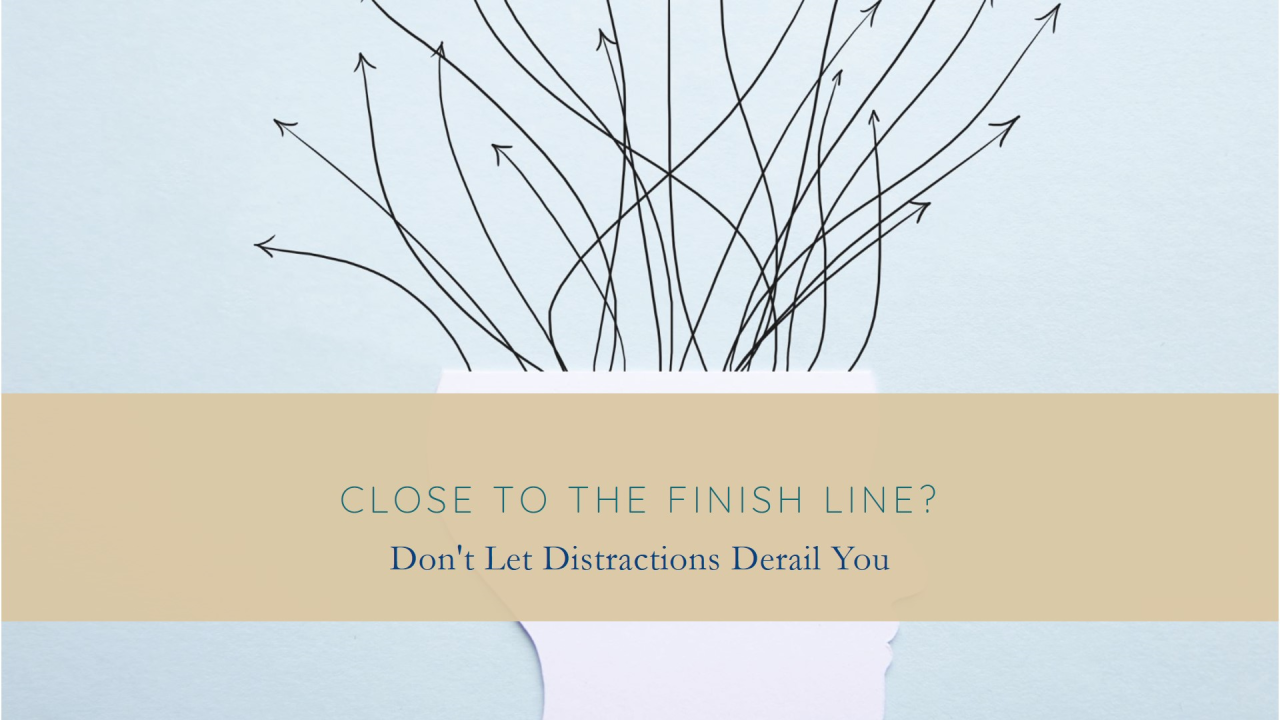Has this ever happened to you? You’ve worked tirelessly toward a goal, but just as you near the finish line, you find yourself feeling stuck or strangely uninterested. Perhaps you’ve fallen ill, gotten lost in elaborate planning, or started dreaming about life after success instead of focusing on the task at hand.
Recently, a friend called me to share his plans for what he’d do after clearing an important exam. Oddly enough, the exam was just days away, yet he seemed more preoccupied with his post-success fantasies. I was reminded of the previous year when the same friend fell ill before a similar milestone. Reflecting on this, I realised I’ve faced similar situations myself—losing interest or feeling distracted in the final phases of my own aspirations. This pattern led me to explore what’s really happening here.
Why Does This Happen ?
This pattern of behavior, as puzzling as it seems, is not without explanation. As individuals approach their goals, they often encounter a complex interplay of fears, expectations, and mental fatigue that can disrupt their focus. Here are some key reasons behind this phenomenon:
The Fear of the Unknown
As the goal draws closer, the uncertainty of the outcome looms larger. Questions like “What if I fail?” or “Am I truly ready?” begin to surface, creating a mental block. For many, this fear becomes overwhelming, leading to avoidance behaviors as a way to shield themselves from potential disappointment.
High Expectations and Fear of Judgment
Years of preparation often build up enormous expectations—from oneself, family, or society. The pressure to live up to these standards can feel suffocating. Ironically, this weight can lead individuals to disengage, either through procrastination or by convincing themselves that the goal isn’t worth the stress.
Burnout from Prolonged Effort
Sustained effort over a long period can drain mental and emotional reserves. By the final phase, aspirants may feel depleted, unable to muster the energy for the crucial last lap. This exhaustion often masquerades as a loss of interest or motivation.
Perfectionism and Overthinking
For perfectionists, the final phase is fraught with self-doubt. They might feel the need to over-prepare or make elaborate plans to cover every possible scenario, often at the expense of actual execution. Overthinking becomes a trap that hinders meaningful progress.
Understanding the Stress Response
Stress triggers the body’s fight-or-flight response, designed for short-term survival. However, in prolonged or high-pressure situations like exam preparation, this response can take on maladaptive forms, such as avoidance, overthinking, or disengagement. This stress responses can show up in two primary ways:
Psychological Manifestations:
- Avoidance Behavior: – The fear of failure or the pressure to meet expectations may lead individuals to unconsciously avoid engaging deeply with the task. Losing interest, procrastinating, or focusing on unrelated activities (like post-exam plans) may act as defence mechanisms to avoid facing the immediate challenge or escape the pressure.
- Over-planning or Overthinking: Stress amplifies the need for control, making individuals feel they can reduce uncertainty by planning every detail. Instead of actual preparation, they may become preoccupied with intricate schedules, what-if scenarios, or irrelevant contingencies.
- Fantasising About Success: – This serves as an escape from the present stress, offering a temporary mental reward. It’s a way to cope with the anxiety by imagining the “finish line” rather than focusing on the race. Dreaming about celebrations, vacations, or future endeavours instead of preparing for the actual test.
- Loss of Interest or Motivation: Burnout from prolonged effort, combined with fear of an impending high-stakes moment, can create a psychological block. This may stem from the subconscious fear of discovering they might not meet their own or others’ expectations. So it’s manifested by feeling detached from the goal, questioning the purpose of their effort, or fantasising about alternatives.
Physiological Manifestations:
- Illness or Fatigue: Chronic stress weakens the immune system, making aspirants more prone to colds, digestive issues, or even psychosomatic symptoms like headaches or body aches.
- Difficulty Concentrating: Elevated stress hormones like cortisol levels disrupt cognitive functions such as memory, focus and problem-solving.
- Sleep Disturbances : Stress often leads to insomnia or disrupted sleep cycles, affecting recovery and cognitive performance. Aspirants might keep staying up late or waking up early but keep feeling unproductive.
Breaking the Cycle
Understanding that these behaviors are natural responses to stress is the first step toward managing them. Here are some practical strategies:
- Recognise Stress Patterns : Recognise that these feelings are normal and temporary. By identifying them, you can prevent them from dictating your actions.
- Simplify and Act : Focus on small, actionable steps rather than getting lost in elaborate plans. Completing even minor tasks builds momentum and reduces overwhelm.
- Reframe the Outcome : Shift your mindset from “I must succeed” to “I will give my best effort.” View the exam or milestone as an opportunity to showcase knowledge, not as a do-or-die situation. Detach self-worth from the outcome. This reduces pressure and helps you approach the goal with a healthier attitude.
- Maintain Routine and Balance : Structured daily habits (including rest, nutrition, and downtime) reduce the likelihood of burnout or self-sabotage.
- Practice Mindfulness : Mindfulness techniques, like deep breathing or meditation, can help calm the nervous system and improve emotional regulation.
- Seek Support : Talk to trusted friends, mentors, or counselors. Sometimes, an external perspective can offer clarity and reassurance.
Final Thoughts
The final phase of any aspiration is often the most challenging, not because of the effort required but due to the mental and emotional hurdles it presents. Understanding that these behaviors are rooted in stress can help aspirants approach their goals with greater self-compassion and clarity. By managing these stress responses, individuals can harness their full potential and cross the finish line with confidence and purpose.
